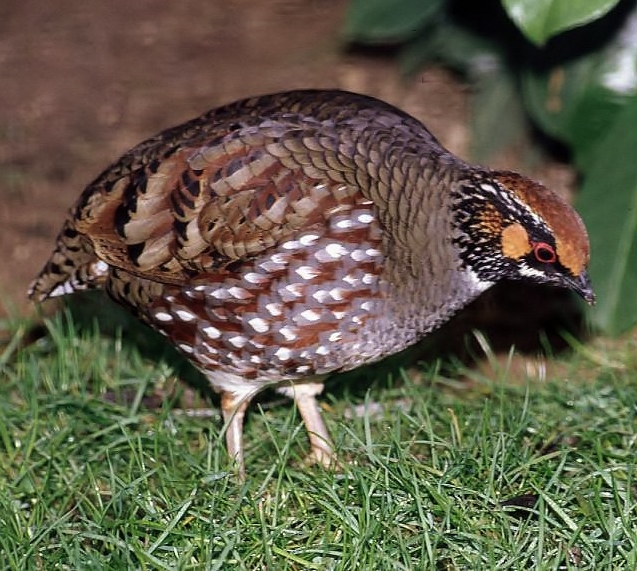 |
| Photo by Josep del Hoyo (Internet Bird Collection) |
Common name:
hill partridge (en); perdiz-montesa (pt); torquéole à collier (fr); arborófila común (es); hügelhuhn (de)
Taxonomy:
Order Galliformes
Family Phasianidae
Range:
This species is found on the slopes of the Himalayas, in Nepal, Bhutan, Tibet and northern India, and also into Myanmar, northern Thailand and northern Vietnam.
Size:
These birds are 27-30 cm long and weigh 230-390 g.
Habitat:
The hill partridge is mostly found in mountain, moist tropical forests, but also uses tropical forests at lower altitudes and mountain moist scrublands. They are present at altitudes of 1.500-2.700 m.
Diet:
They feed on various seeds and invertebrates.
Breeding:
Hill partridges breed in April-June. The nest in a bowl or dome made of grass, placed on the ground or sometimes on a bank. The female lays 3-9 eggs which are incubated for 24 days. The chicks leave the nest soon after hatching.
Conservation:
IUCN status – LC (Least Concern)
This species has a large breeding range and is reported to be generally fairly common. The population is suspected to be in decline owing to ongoing habitat destruction, but it is not considered threatened at present.







